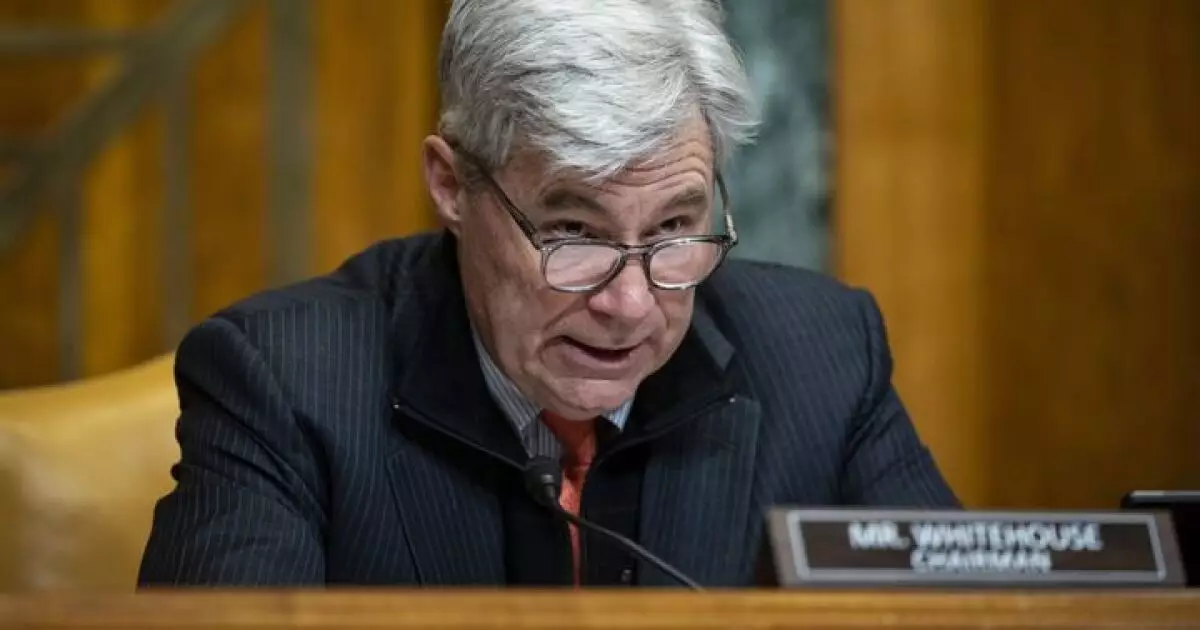The recent debacle surrounding the temporary freeze and subsequent lifting of federal funds by the White House has led to considerable confusion and frustration among lawmakers and transportation officials. This situation is especially concerning for those relying on federal reimbursements for vital infrastructure projects that were agreed upon through bipartisan legislative efforts. Senator Sheldon Whitehouse, a key figure in the Senate, articulated this sentiment, emphasizing the dissonance that arises when a president selectively enforces laws, undermining the collaborative spirit established by Congress. His remarks came during a critical conference hosted by the American Association of State Highway and Transportation Officials (AASHTO), highlighting the ongoing struggle for clarity in funding for essential projects.
Despite the resolution of the freeze, significant uncertainty remains, particularly in states like Rhode Island. The initial federal funding interruption, followed by a legal challenge from 22 states, instantaneously instigated a cascade of apprehension within the transportation sector. This unpredictability exacerbates the longstanding issues faced by state Departments of Transportation, including the impending expiration of funding from the Bipartisan Infrastructure Law in September 2026. Lawmakers are in a state of deliberation regarding the structure of a future infrastructure bill—balancing between a comprehensive plan that encompasses traditional transportation projects and broader categories including airports and broadband.
Joung Lee, the director of policy and government relations at AASHTO, has emphasized the necessity of prioritizing surface transportation, which traditionally includes highways, transit systems, and rail services, in any new legislature. As discussions continue around the reauthorization of an infrastructure bill, there is a growing consensus at the state and local levels favoring an increase in formula funding through established programs. This shift indicates a collective frustration with the complicated and often protracted process of acquiring funds through discretionary grant programs, as previously highlighted in the Bipartisan Infrastructure Law.
Garrett Eucalitto, the AASHTO president, sheds light on the logistical barriers faced when navigating grant agreements that consume excessive time and resources prior to project execution. The desire to streamline funding processes resonates with some Republican lawmakers, including Senator Shelley Moore Capito, who argues for the elimination of ineffective programs in favor of returning discretionary dollars to formula-based systems. Such systemic changes would empower state governors and legislators to make decisions more in line with their jurisdictions’ specific needs, potentially leading to more efficient infrastructure project delivery.
Compounding the funding complications is the looming crisis of the Highway Trust Fund, which is projected to run out of money by 2027 unless proactive measures are taken by Congress. A considerable factor in this financial shortfall is the rise of electric vehicles (EVs), which contribute less to the fuel tax revenue that supports the fund. The transition to EVs presents an urgent need for policy reevaluation, particularly in light of Transportation Secretary Sean Duffey’s recent memorandum aimed at easing Corporate Average Fuel Economy standards. Critics argue that such moves compromise environmental goals in pursuit of short-term affordability, underscoring the tension between economic considerations and ecological responsibility.
Additionally, debates are heating up concerning the future of electric vehicle mandates. Lawmakers, including Senator Capito, suggest that current regulations essentially encourage EV adoption by imposing stringent tailpipe emissions standards. There is anticipation that these mandates could soon be revisited or rescinded in legislative negotiations, revealing a larger ideological battle over the direction of national transportation policies.
As discussions loom at the federal level, individual states are confronting their own challenges in addressing the implications of electric vehicles on transportation funding. Many states have instituted various user fees and registration surcharges for EVs to compensate for decreased contributions to the Highway Trust Fund. Russell McMurry, AASHTO’s Vice President and Treasurer, highlights that while most states have initiated some form of EV fee, there remains no cohesive national standard. As states continue to navigate this evolving landscape, the inequities in funding for infrastructure maintenance and development are likely to intensify.
The interplay of bipartisan agreements, federal policy decisions, and the shifting landscape of vehicle technology underscores a critical moment for American infrastructure. The ongoing dialogue among lawmakers, transportation agencies, and state officials is vital as they work to build a sustainable and effective framework for the future of transportation funding, ensuring that the nation’s infrastructure can meet the diverse challenges it faces in an ever-changing environment.

